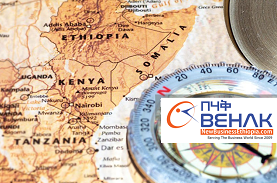By Andualem Sisay Gessesse – Introduction: Navigating Ethiopia’s Growing Investment Landscape
Ethiopia has positioned itself as one of Africa’s fastest-growing economies, recording robust growth rates averaging 6% over the past decade, according to the World Bank.
The government’s 10-Year Development Plan aims to diversify the economy away from agriculture towards manufacturing, energy, logistics, and ICT. Foreign investors are increasingly drawn to Ethiopia’s large population (over 120 million people), expanding urban middle class, and strategic location within the African Continental Free Trade Area (AfCFTA). However, rapid change brings with it regulatory ambiguity, shifting policies, and operational uncertainties.
For every success story, there is a cautionary tale of investors who underestimated the risks. Due diligence is therefore more than a checkbox—it is the foundation of a viable investment strategy.
1. Navigating Ethiopia’s Regulatory Environment: Understanding Ethiopia’s Legal and Regulatory Framework
Foreign investment is regulated by the Ethiopian Investment Commission (EIC), which oversees licensing, project approvals, and compliance. While Ethiopia has streamlined some processes, bureaucratic delays remain common—especially for investors unfamiliar with regional-level approvals.
Risks of poor regulatory checks include:
• Permit delays or cancellations from incomplete applications
• Violation of restricted sector rules, leading to forced exits
• Missed incentives (like tax holidays or duty-free imports) because of unawareness
📌 Investor Tip: Review the EIC’s updated investment proclamation before any market entry planning.
Case in Point:
A mid-sized European textile company lost nearly nine months of production time after unknowingly establishing in a zone requiring separate environmental clearance from the regional government—a requirement not mentioned in their national-level paperwork.
2. Political and Economic Stability – The Double-Edged Sword: Assessing Political and Economic Risks
Political reforms have opened Ethiopia to new capital inflows, but localized tensions can impact logistics, supply chains, and workforce stability. Currency shortages, high inflation, and shifting import/export regulations remain operational risks, according to the IMF’s country profile.
Ethiopia is also undergoing debt restructuring under the G20 Common Framework. This process could affect foreign exchange reserves, influencing profit repatriation timelines for investors.
📊 Economic Snapshot:
• GDP Growth (2024): ~6.2% (World Bank)
• Inflation Rate: ~28% (Trading Economics, 2024)
• Forex Reserves: ~2 months of imports (IMF)
3. Legal and Compliance Verification: Ensuring Legal and Regulatory Compliance
Due diligence should always include:
• Corporate registration verification at the Ministry of Trade
• Tax compliance status from the Ethiopian Revenues and Customs Authority
• Court case searches for civil, commercial, and criminal disputes
• Land title checks (especially for agriculture and industrial parks) to confirm lease validity and boundaries
Investor Tip: In Ethiopia, land is state-owned. Long-term leases—often up to 99 years—are common for industrial projects, but can be subject to review if development milestones are missed.
4. The Human Factor: Reputation and Networks: Evaluating Partner Reputation and Local Networks
In Ethiopia, relationships and reputational trust often weigh as heavily as formal contracts.
Independent field checks can reveal:
• Politically exposed persons (PEPs) among shareholders
• Informal partnerships not disclosed in corporate filings
• Community disputes affecting local operations
5. Market-Specific Operational Risks: Operational Challenges Unique to Ethiopia
• Foreign exchange controls limiting capital repatriation
• Infrastructure gaps affecting logistics, especially in rural areas
• Variable enforcement of national laws across regions
Example: A logistics firm discovered during due diligence that a key road used for transporting goods was frequently blocked during seasonal disputes between local communities—information absent from official records.
6. Lessons from the Field: Practical Lessons from Local Case Studies
• Positive example: A renewable energy startup engaged a local due diligence firm, uncovering hidden municipal permit requirements. This saved them six months in project delays and potential financial penalties.
• Negative example: A distributor entered Ethiopia without verifying its partner’s financial health, only to later find the partner had massive undisclosed debts.
7. Best Practices for Ethiopia-Specific Due Diligence: Strategic Steps for Effective Due Diligence
• Engage local experts and investigative journalists with sector-specific experience
• Verify information using multiple independent sources
• Factor in currency and capital repatriation risks early in planning
• Review bilateral investment treaties via UNCTAD’s Investment Policy Hub
Conclusion
Ethiopia’s potential is immense—but so are its complexities. Proper due diligence helps investors anticipate challenges, navigate bureaucracy, and avoid costly missteps.
📌 Request our Ethiopia Due Diligence Checklist to protect your investment and make informed decisions before committing capital.
EDITOR’S NOTE: the Author, Andualem Sisay Gessesse is a seasoned corporate due diligence expert and investigative journalist based in Ethiopia. As the Founder and Lead Investigator of NewBusinessEthiopia.com, he combines rigorous investigative techniques with deep local knowledge to provide businesses and investors with reliable intelligence that protects their investments and uncovers hidden risks across Ethiopia and Africa.

With over 15 years of experience working with multinational corporations, governments, and financial institutions, Andualem is recognized as a leading authority on corporate risk and due diligence in Ethiopia. His unique approach—“Investigative Due Diligence Backed by Real Journalism”—ensures clients receive actionable insights grounded in facts, verified on the ground. Connect with Andualem on LinkedIn to learn more about how his team helps investors navigate Ethiopia’s complex business landscape.
